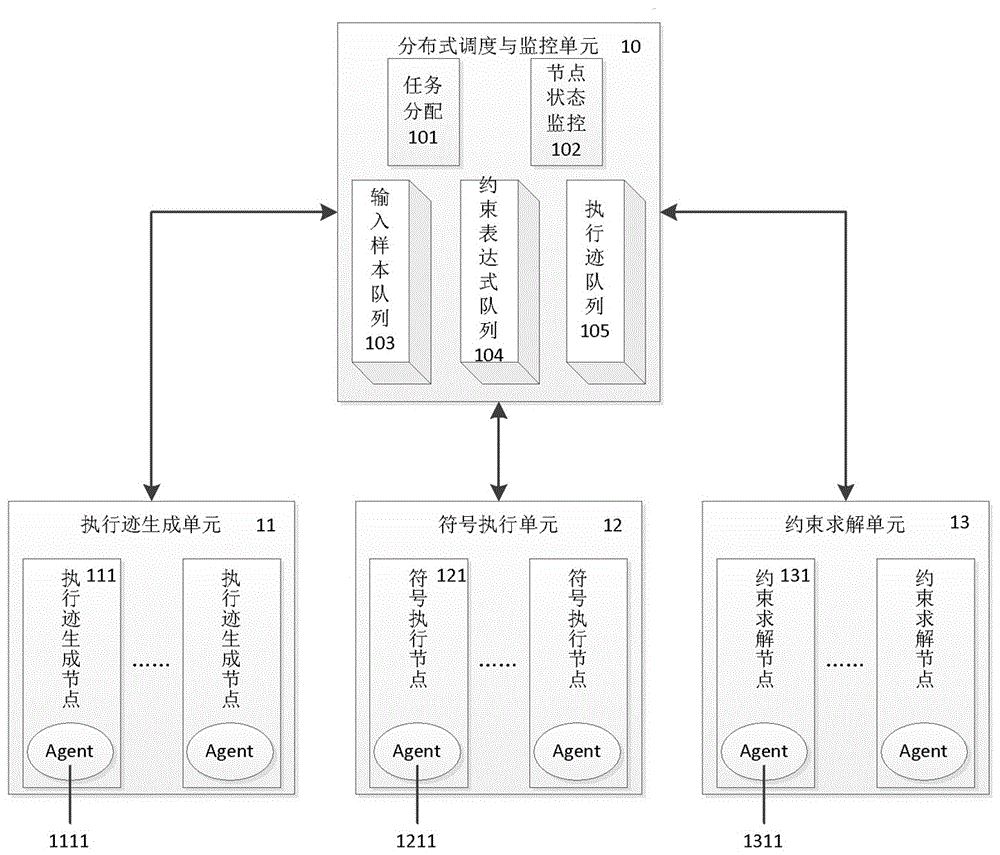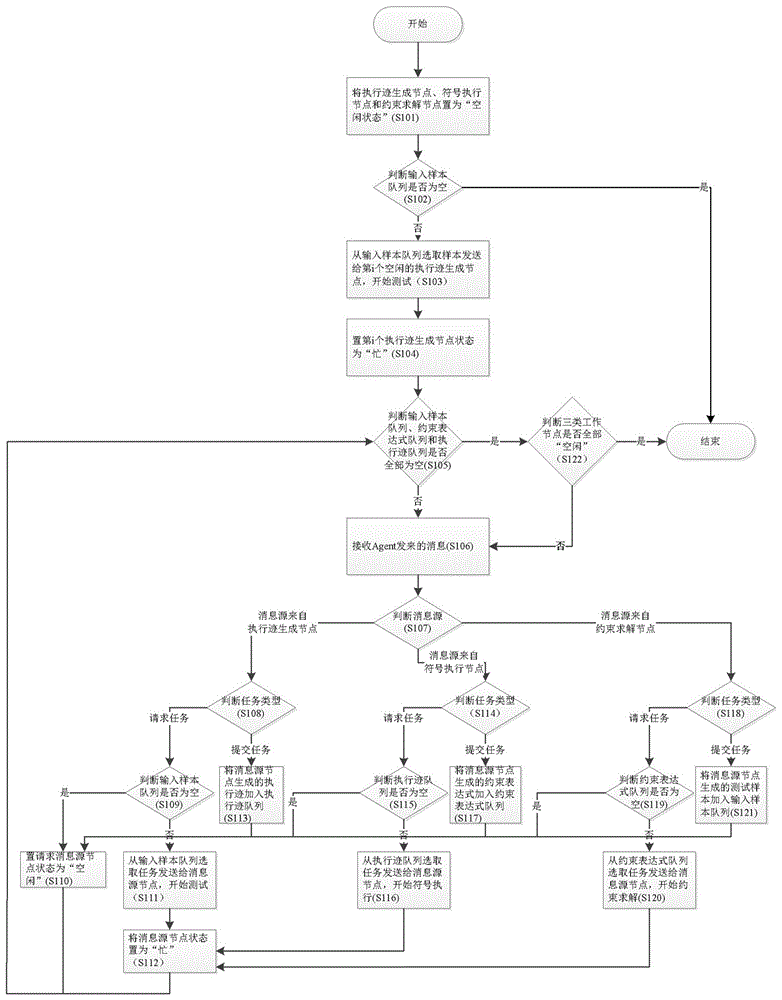Parallel symbol execution system based on multi-Agent distributed scheduling
A symbolic execution and distributed technology, applied in the direction of concurrent instruction execution, machine execution device, multi-programming device, etc., can solve problems affecting parallel efficiency, unknown form, unbalanced load distribution, etc., to improve parallel efficiency and technical management flexible effects
- Summary
- Abstract
- Description
- Claims
- Application Information
AI Technical Summary
Problems solved by technology
Method used
Image
Examples
Embodiment 1
[0040] Example 1: Combining figure 1 , a parallel symbolic execution system based on multi-agent scheduling, including a distributed scheduling and monitoring unit 10, an execution trace generation unit 11, a symbolic execution unit 12 and a constraint solving unit 13; the distributed scheduling and monitoring unit 10 is used for Assignment and scheduling of tasks, monitoring the node idle status of the execution trace generation unit 11, the symbol execution unit 12 and the constraint solving unit 13, so as to maintain load balance;
[0041]The monitoring execution trace generation unit 11 includes a plurality of execution trace generation nodes 111, each node has the same structure and function, can independently perform related functions, and includes an Agent1111 for communicating with the distributed scheduling and monitoring unit 10; Among them, the execution trace generation node 111 is used to drive the actual execution of the program under test by specific input, dete...
Embodiment 2
[0068] Example 2, combined with figure 2 , the parallel symbolic execution system based on multi-agent scheduling includes: a distributed scheduling and monitoring unit 10 , an execution trace generation unit 11 , a symbolic execution unit 12 and a constraint solving unit 13 .
[0069] The distributed scheduling and monitoring unit 10 is used to implement pipeline parallel scheduling for the execution trace generation unit, the symbolic execution unit and the constraint solving unit. The purpose of job scheduling is to increase the degree of parallel operation of the system and avoid idle nodes. The producers and consumers of the three task queues of the parallel scheduling service are as follows: 1. The producer of the input sample queue 103 is the constraint solving unit 13, and the consumer is the execution trace generation unit 11; 2. The producer of the execution trace queue 105 is the execution trace generating unit 11 , and the consumer is the symbolic execution unit ...
PUM
 Login to View More
Login to View More Abstract
Description
Claims
Application Information
 Login to View More
Login to View More - R&D
- Intellectual Property
- Life Sciences
- Materials
- Tech Scout
- Unparalleled Data Quality
- Higher Quality Content
- 60% Fewer Hallucinations
Browse by: Latest US Patents, China's latest patents, Technical Efficacy Thesaurus, Application Domain, Technology Topic, Popular Technical Reports.
© 2025 PatSnap. All rights reserved.Legal|Privacy policy|Modern Slavery Act Transparency Statement|Sitemap|About US| Contact US: help@patsnap.com


